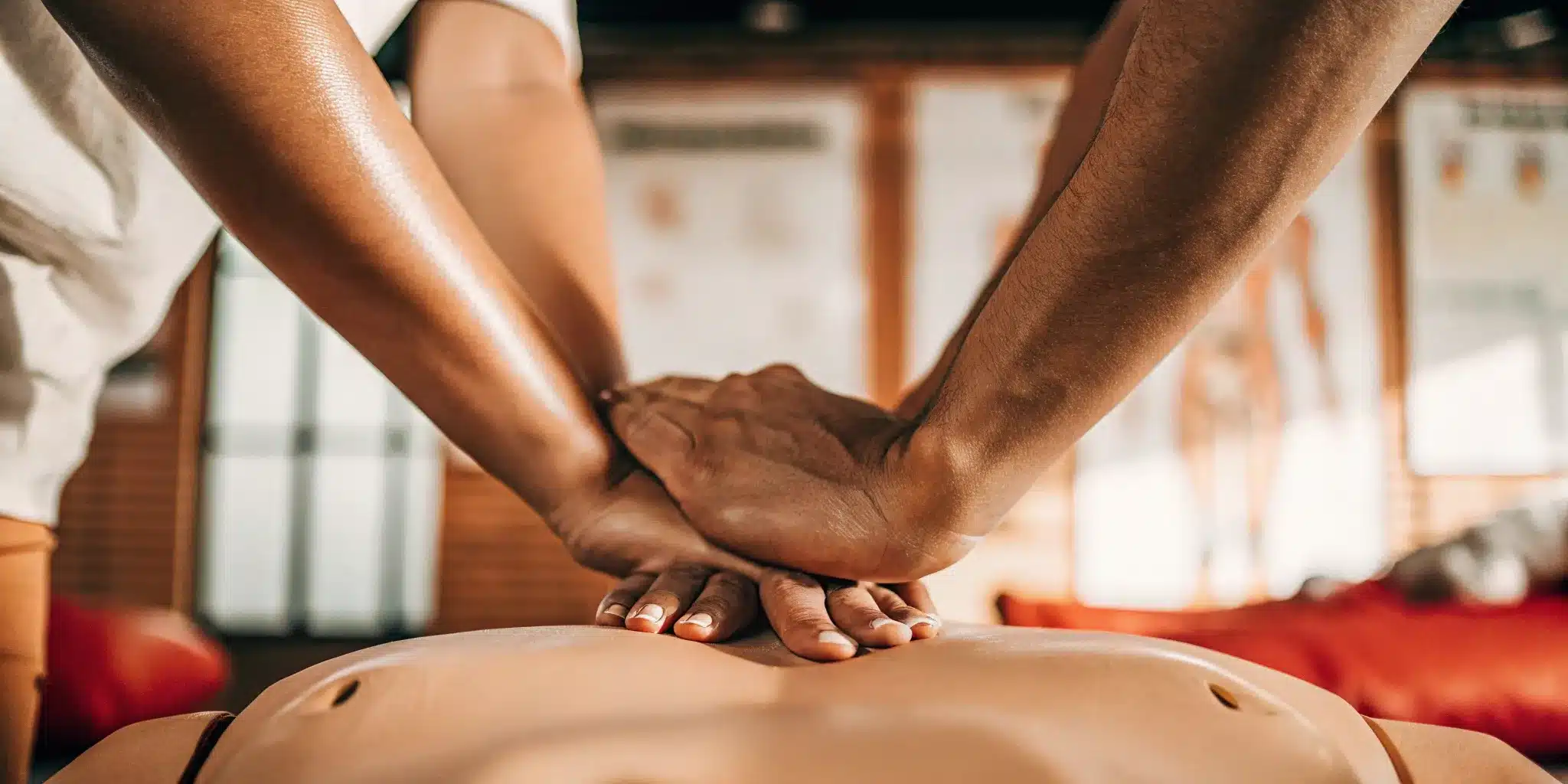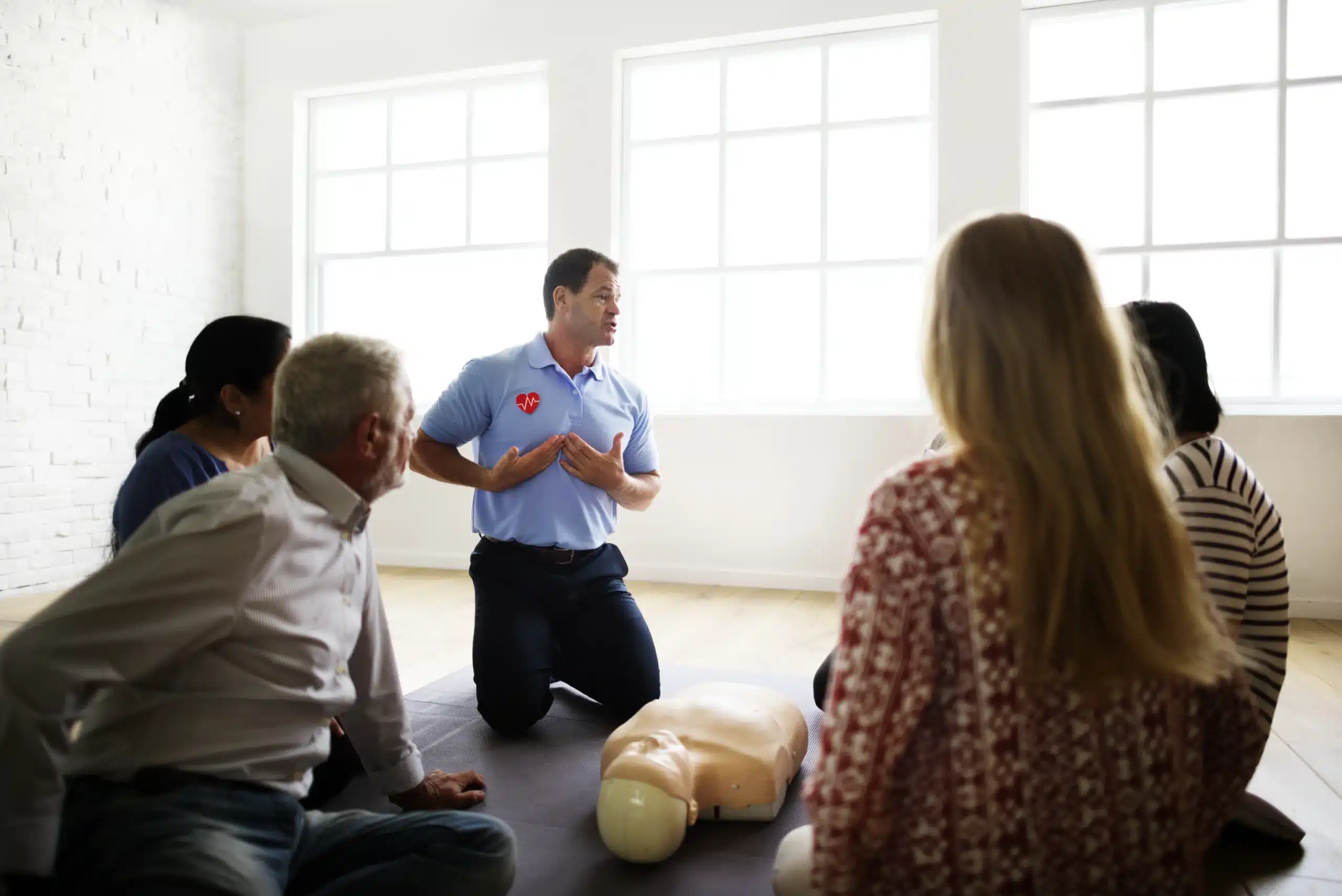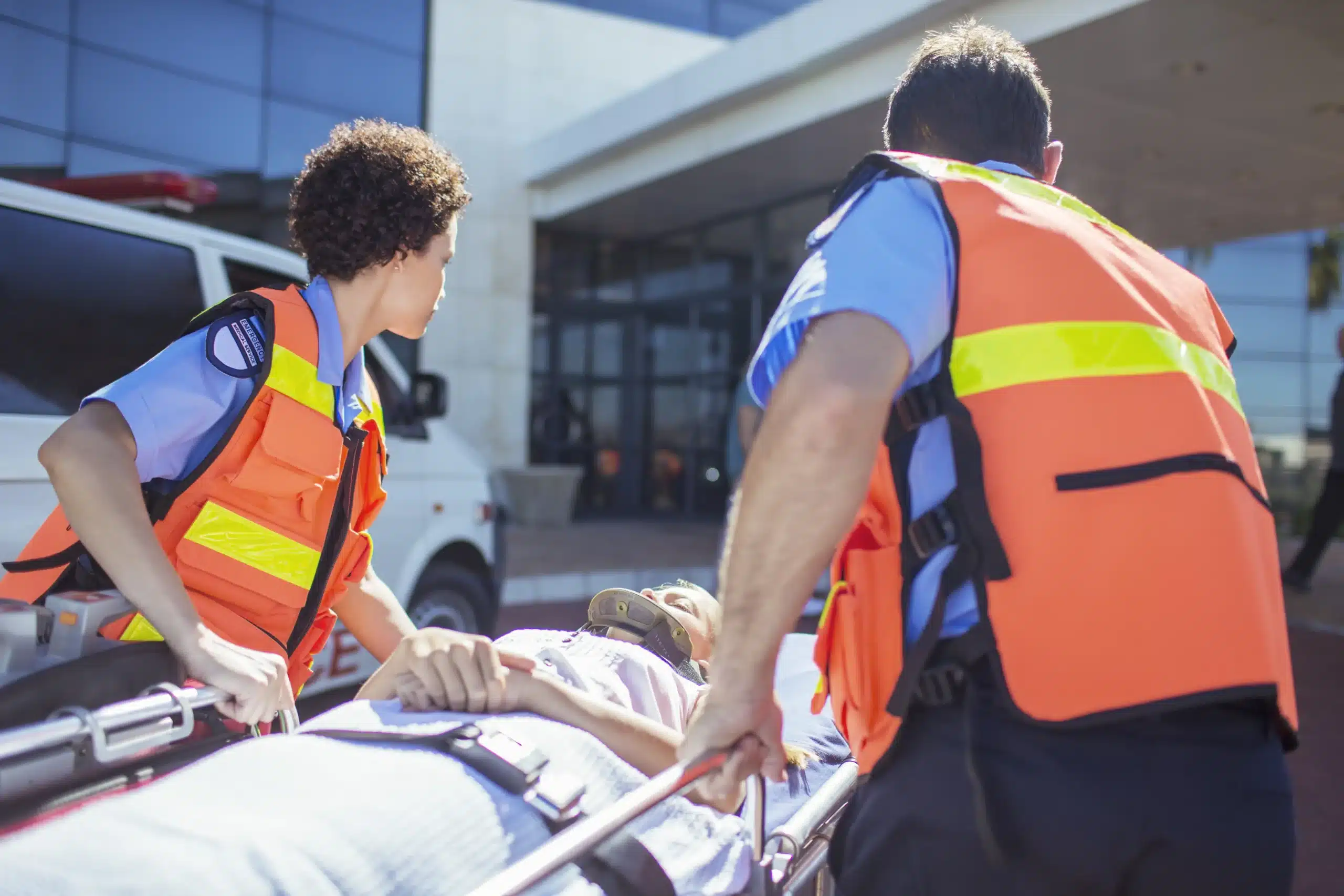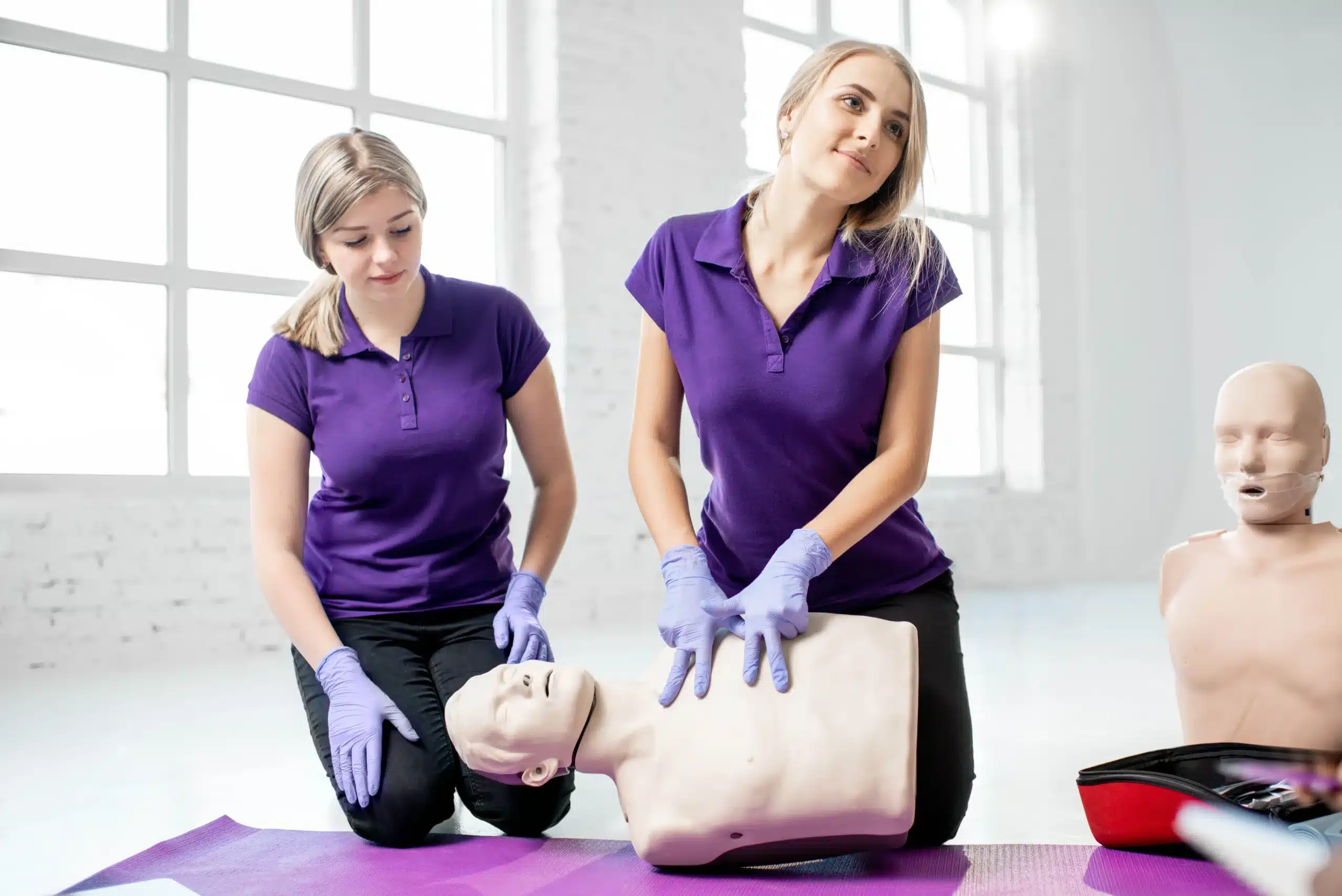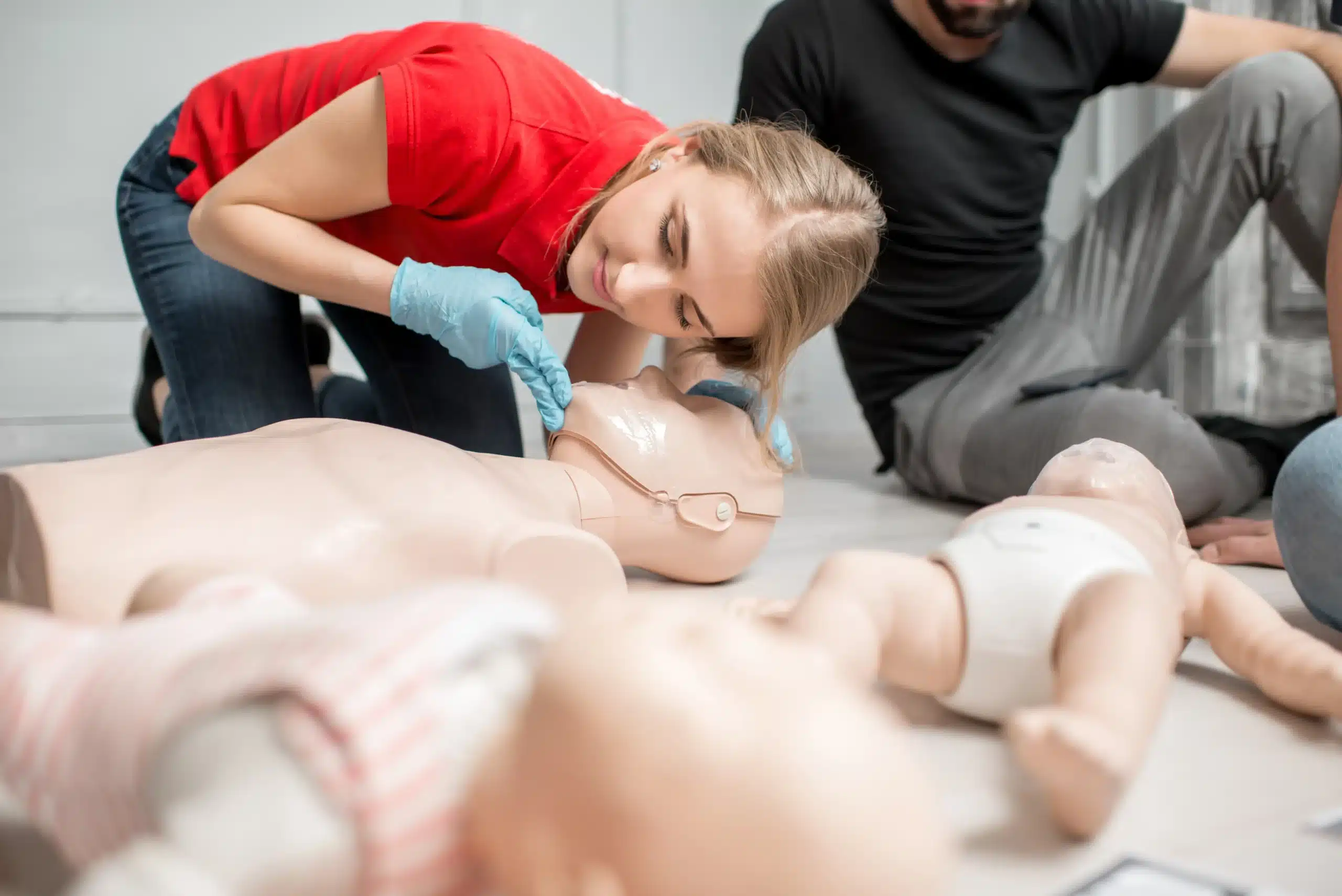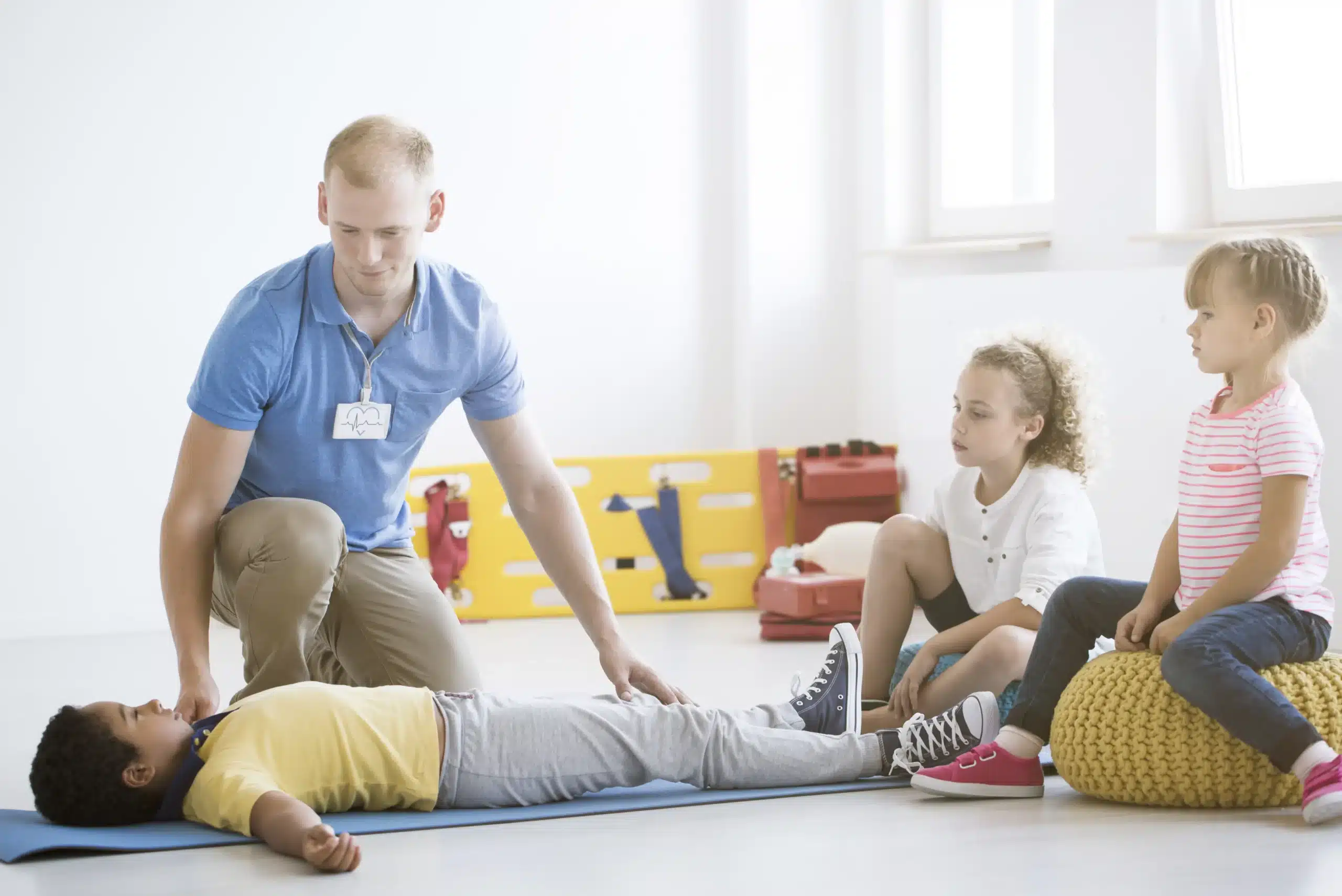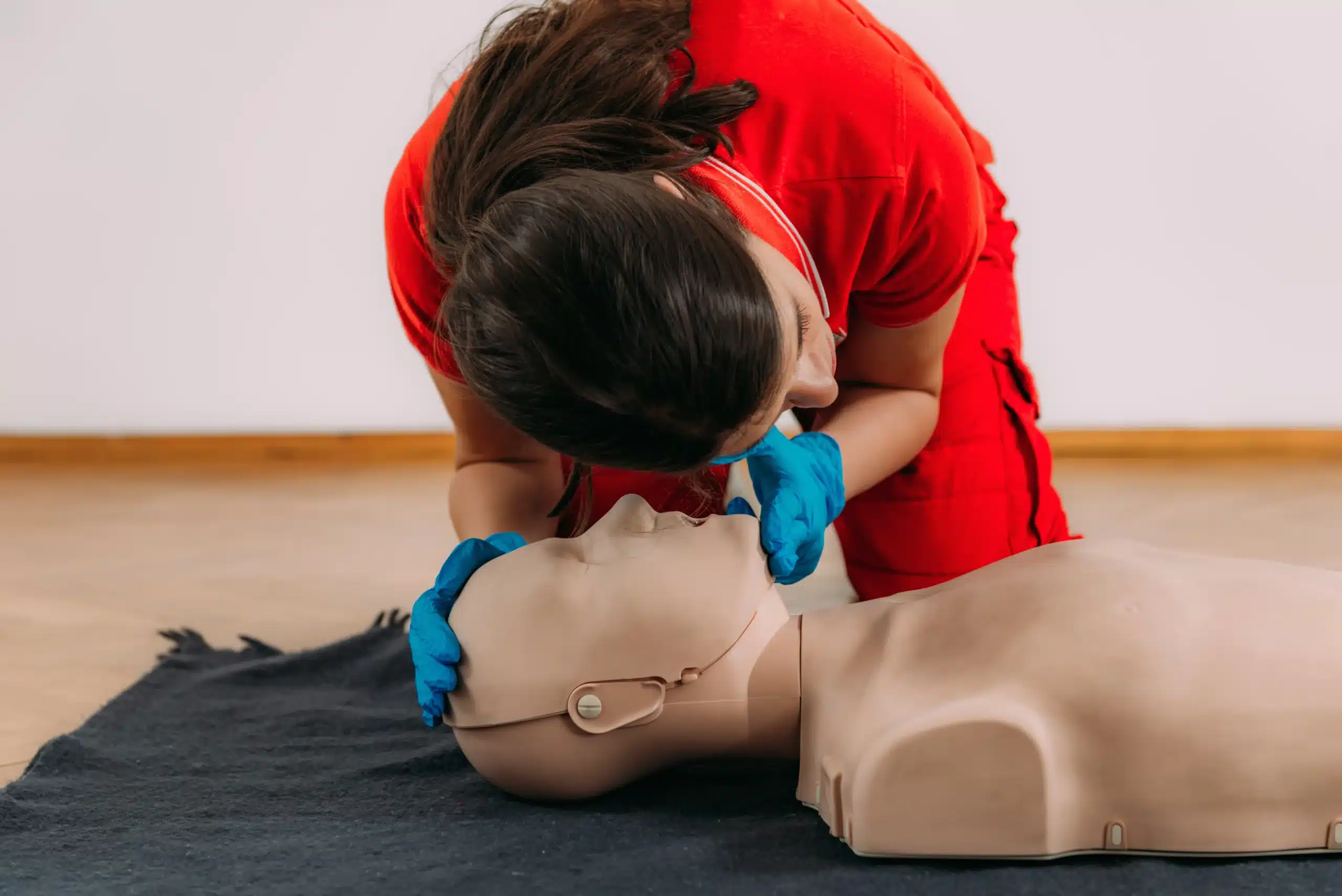Emergencies happen, and knowing CPR can make all the difference. If you’re looking for CPR certification in Stockton, this comprehensive guide is your starting point. We’ll cover everything from the basics of CPR to choosing the right course for your specific needs. We’ll also debunk some common CPR myths and highlight why these skills are so important in our community. Whether you’re in Stockton, Tracy, or Lodi, getting your CPR certification in Stockton has never been easier. Let’s explore the different types of CPR courses, local training providers, and what to expect during your training.
Key Takeaways
- CPR certification empowers you to respond to emergencies. Find the right course, from basic CPR and AED use to advanced certifications like ACLS and PALS, based on your individual needs.
- Safety Training Seminars offers convenient and affordable AHA-certified CPR courses in Stockton, CA. We’re committed to providing high-quality training and excellent customer service.
- Maintain your CPR skills. Renew your certification every two years to stay current with the latest guidelines and best practices for providing effective care.
What is CPR Certification?
CPR certification shows you know how to perform CPR and use an AED in emergencies. It’s important for healthcare professionals and anyone who wants to be prepared. The American Heart Association (AHA) offers CPR certification courses that teach you how to recognize and respond to these emergencies. You’ll learn essential skills like performing high-quality CPR and using an AED, which can be critical in saving lives. CPR certification typically involves online learning and hands-on skills sessions. Your certification is valid for two years. This training gives you lifesaving skills and often meets workplace safety standards, making it valuable across many professions. If you’re in Stockton, Tracy, or Lodi, check out the convenient and affordable CPR classes at Safety Training Seminars.
CPR Course Types
Choosing the right CPR course depends on your specific needs and career goals. Here’s a breakdown of the most common CPR certifications available in Stockton:
Basic Life Support (BLS)
BLS certification is the foundation for anyone interested in learning CPR. It covers core life-saving skills like recognizing cardiac arrest, performing high-quality chest compressions, and using an AED. BLS certification is often a job requirement for healthcare providers, but it’s also valuable for anyone. Safety Training Seminars offers American Heart Association (AHA) certified BLS courses in Stockton, providing you with a nationally recognized credential.
Advanced Cardiovascular Life Support (ACLS)
ACLS certification builds on the skills learned in BLS and is designed for healthcare professionals who manage cardiovascular emergencies. This advanced training covers a broader range of interventions, including airway management, pharmacology, and team dynamics during resuscitation. If you’re a doctor, nurse, or paramedic, ACLS certification is likely a job requirement. ACLS courses at Safety Training Seminars can advance your skills and knowledge.
Pediatric Advanced Life Support (PALS)
PALS certification focuses on the specific needs of infants and children during medical emergencies. This course teaches healthcare providers how to recognize and respond to life-threatening situations in pediatric patients. Like ACLS, PALS certification is essential for healthcare professionals working with children, including pediatricians, nurses, and emergency medical technicians. Safety Training Seminars also provides PALS certification in Stockton, preparing you to handle pediatric emergencies.
First Aid and CPR/AED
Combining First Aid with CPR/AED training gives you a well-rounded skill set to respond to various emergencies. You’ll learn how to manage injuries, control bleeding, and provide basic life support in different situations. This combined certification is a great option for anyone, from childcare providers and teachers to those simply wanting to be prepared. Consider adding EMSA Child Care Health & Safety training for a more specialized approach to pediatric care.
Top Stockton CPR Certification Providers
Finding the right CPR certification course can feel overwhelming. To simplify your search, I’ve compiled a list of respected providers in Stockton. Remember to visit their websites for the latest course schedules and pricing.
Safety Training Seminars
Safety Training Seminars offers a range of American Heart Association-certified CPR and first aid courses, including BLS, ACLS, PALS, and First Aid. With daily classes, they offer flexible scheduling. They’re committed to excellent customer service and competitive pricing. They also provide an EMSA Child Care Health and Safety course and have a low price guarantee.
American Red Cross
The American Red Cross is a well-known provider of CPR/AED training. Their Stockton courses equip participants with the skills to handle cardiac emergencies, including CPR and AED operation.
American Heart Association
The American Heart Association (AHA) offers nationally recognized CPR, BLS, ACLS, PALS, and First Aid certifications in Stockton. These courses are valuable for healthcare providers and anyone wanting to learn these vital skills. You can find these courses offered through various training centers, including Safety Training Seminars.
Professional CPR
With over two decades of experience, Professional CPR provides CPR, First Aid, BLS, and AED training in Stockton. They focus on practical skills and real-life scenarios, led by experienced instructors.
LifeSaver CPR
LifeSaver CPR offers comprehensive training in basic first aid, CPR, AED use, and airway management techniques. Their emphasis on safety and quick response makes their courses a valuable resource.
What Happens in a CPR Course?
Taking a CPR course is a rewarding experience. You’ll gain confidence and practical skills that can help save a life. This section breaks down what you can expect during your training.
Course Content and Skills
CPR courses cover essential life-saving techniques. You’ll learn to recognize the signs of someone experiencing a cardiac or breathing emergency. Instructors explain how to provide first aid, perform CPR, and use an automated external defibrillator (AED). Safety Training Seminars follows the American Heart Association guidelines, ensuring you receive high-quality, up-to-date instruction. Courses also cover how to relieve obstructed airways, a critical skill in many emergency situations.
Hands-on Practice
CPR courses aren’t just lectures. Hands-on practice is a significant part of the training. You’ll work with mannequins to develop proper CPR techniques and gain confidence using an AED. In-person classes provide ample opportunity to practice these skills under the guidance of certified instructors.
Certification Process
Upon successful completion of the course, you’ll receive an official American Heart Association (AHA) certification card. This certification is valid for two years and demonstrates your CPR proficiency. The process is straightforward—you’ll receive your card after completing the in-person skills session.
Course Duration, Formats, and Costs
Finding the right CPR class often comes down to practical matters like cost, schedule, and learning style. Let’s break down the different options available in Stockton.
In-Person Classes
In-person CPR classes offer hands-on practice and direct interaction with an instructor. This format is ideal for those who learn best in a traditional classroom setting and value the opportunity to ask questions and receive immediate feedback. You’ll work with training manikins and practice your skills in a controlled environment. These classes typically run for several hours on a single day, depending on the specific course. For example, our BLS certification course at Safety Training Seminars covers essential life-saving techniques.
Online Courses
Online CPR courses provide a flexible alternative for busy schedules. You can complete the coursework at your own pace from anywhere with an internet connection. This can be a great option for refreshing your knowledge or fitting training around work and family commitments. However, it’s important to note that online-only courses may not provide the hands-on practice and certification required for certain workplaces or licensing requirements. Check with your employer or regulatory board to confirm the type of certification you need.
Blended Learning
Blended learning combines the best of both worlds. These courses typically involve an online component that covers the theoretical knowledge, followed by an in-person skills session where you can practice what you’ve learned under the guidance of a certified instructor. This format offers flexibility while still ensuring you get the hands-on experience necessary for proper certification. Our PALS certification is an example of a course where blended learning can be particularly effective.
Typical Pricing
CPR course costs can vary depending on the provider, the type of certification (BLS, ACLS, PALS, etc.), and the course format. Safety Training Seminars is committed to offering the lowest prices in San Joaquin County. Check our website for our price guarantee and current course offerings for ACLS and other certifications.
Discounts and Promotions
Keep an eye out for discounts and promotions that can make CPR training even more affordable. Some providers, including the Red Cross, offer periodic discounts on training materials and other resources. Be sure to check with your chosen provider to see if any discounts are currently available. We also recommend checking our website for updates on special offers for our EMSA Child Care Health & Safety course and other programs.
Get Certified and Stay Certified: Requirements & Renewal
Initial Certification
To receive your CPR certification, you must successfully complete a training course covering both theory and practical skills. These courses combine classroom learning with hands-on practice, ensuring you grasp the techniques and understand the principles behind them. Safety Training Seminars offers CPR certification courses that meet American Heart Association (AHA) guidelines, providing you with a nationally recognized credential. After successfully completing the course, you’ll receive an official AHA certification card, valid for two years. This certification is a must-have for healthcare professionals, emergency responders, and anyone interested in acquiring these vital life-saving skills.
How Long is Certification Valid?
CPR certifications are typically valid for two years. This timeframe helps ensure certified individuals stay current with the latest CPR techniques and guidelines, which are constantly evolving to reflect the most effective practices. Maintaining proficiency in these skills is crucial for providing effective assistance during emergencies. Regular training reinforces best practices and builds confidence in your ability to respond effectively. For more information on CPR training and certification validity, you can explore resources like the Red Cross.
Renewal Options
When your certification nears its expiration date, you’ll need to renew it to maintain your credentials. Renewal typically involves completing a refresher course, often called a skills session. This in-person session allows you to practice essential techniques and learn about any updated guidelines. After completing the renewal session, you’ll receive a new two-year certification card. While online CPR training can be a convenient way to learn the basics, many workplaces require hands-on practice for certification, making in-person renewal courses the preferred option. In-person training offers valuable opportunities to interact with instructors, ask questions, and refine your skills under expert guidance.
Choose the Right CPR Course
Knowing which CPR course is right for you depends on your specific needs. Whether you’re a healthcare provider, work with children, or simply want to be prepared for emergencies, there’s a course designed to equip you with the right skills. Let’s break down the options:
For Healthcare Professionals
Healthcare professionals like doctors, nurses, and EMTs face unique challenges and need advanced life support training. Courses like Basic Life Support (BLS), Advanced Cardiovascular Life Support (ACLS), and Pediatric Advanced Life Support (PALS) provide in-depth training on managing various life-threatening situations. These certifications are often required for employment and cover a wider range of skills, including airway management and rhythm recognition. Safety Training Seminars offers these advanced courses, ensuring you receive high-quality training for your field.
For Childcare Providers
Working with children means being prepared for anything. Childcare providers need specialized training to handle pediatric emergencies. While a general CPR course is helpful, courses specifically designed for childcare providers, such as those covering pediatric CPR and first aid, are essential. These courses focus on the unique needs of infants and children, teaching you how to respond effectively to choking, breathing difficulties, and other emergencies. The EMSA Child Care Health & Safety course offered by Safety Training Seminars meets California’s requirements for childcare providers and covers a broad range of health and safety topics.
For the General Public
Learning CPR is a valuable skill for anyone, regardless of profession. Even without a medical background, you can make a real difference in an emergency. A general CPR and AED course teaches the fundamentals of CPR, how to recognize the signs of a cardiac arrest, and how to use an automated external defibrillator (AED). This basic training empowers you to respond confidently and potentially save a life while waiting for professional medical help to arrive. Safety Training Seminars offers affordable and accessible CPR and AED training, making it easy to learn these essential skills. Check out our low price guarantee.
Essential CPR Skills You’ll Learn
CPR certification equips you with the skills to respond effectively during medical emergencies. These courses cover a range of techniques, from basic life support to using an AED. Let’s explore some of the essential skills you’ll gain.
High-Quality Chest Compressions
Effective CPR hinges on delivering high-quality chest compressions. You’ll learn the proper hand placement, depth, and rate of compressions to ensure adequate blood circulation. This involves understanding the mechanics of compressions and how to maintain the correct rhythm. Hands-on practice builds your confidence and competence in performing compressions effectively, as emphasized by LifeSaver CPR’s focus on providing these life-saving measures “in a safe, timely, and effective manner.”
Using an AED
Automated External Defibrillators (AEDs) are life-saving devices used to restore a normal heart rhythm during sudden cardiac arrest. CPR classes teach you how to operate an AED safely and efficiently. You’ll learn to assess the situation, apply the AED pads, and follow the device’s prompts. The Red Cross includes AED training as a crucial component of responding to cardiac emergencies. Understanding how and when to use an AED can significantly improve the chances of survival.
Recognizing Emergencies
Knowing how to recognize a medical emergency is the first step towards providing effective assistance. Your CPR training will cover various emergency scenarios, including heart attacks, strokes, choking, and near-drowning incidents. You’ll learn to identify the signs and symptoms and how to assess the situation quickly. Professional CPR stresses the importance of recognizing emergencies to ensure students are prepared to act. This knowledge empowers you to take appropriate action.
First Aid Techniques
Beyond CPR and AED use, you’ll also learn essential first aid techniques. These skills address a wide range of situations, from treating minor cuts and burns to managing fractures and sprains. You’ll learn how to control bleeding, clean and dress wounds, and immobilize injured limbs. Stockton CPR Certification includes these first aid techniques in their courses, offering comprehensive training. Having these skills allows you to provide immediate care before professional medical help arrives.
CPR Certification Myths Debunked
Let’s clear up some common misconceptions about CPR certification. These myths often prevent people from getting trained, so let’s set the record straight.
Who Needs CPR Training?
One persistent myth is that only healthcare professionals need CPR training. This isn’t true. While medical professionals use CPR frequently, anyone can benefit from learning these life-saving skills. CPR is needed when someone’s heart stops, and that can happen anywhere. Having trained individuals nearby can dramatically increase the chances of survival until paramedics arrive. Empowering yourself with CPR training means you can provide immediate care in an emergency.
Time & Cost Considerations
Another common misconception is that CPR certification is expensive and time-consuming. Many affordable options exist, especially here in San Joaquin County. Safety Training Seminars offers a low price guarantee on our courses. The classes are designed to fit busy schedules, with various course formats, including weekend and evening options. Check out our BLS, ACLS, and PALS course pages for more details.
Learning Methods & Effectiveness
Some people worry they won’t be able to learn CPR effectively. With quality instruction and practice, anyone can learn CPR. Our courses at Safety Training Seminars combine clear explanations with hands-on practice, ensuring you grasp the techniques and gain the confidence to use them. We believe that knowledge is key, and we’re committed to providing thorough training that equips you with the skills to perform CPR safely and effectively. Read more about debunking common CPR myths on our blog. We also offer an EMSA Child Care Health & Safety course for those working with children.
Why CPR Certification Matters in Stockton
CPR certification is a vital skill that can dramatically improve outcomes during medical emergencies. In the United States, hundreds of thousands of cardiac arrests occur annually, and knowing CPR can truly be the difference between life and death. The American Red Cross offers CPR training and emphasizes its importance as a valuable life skill.
Stockton, with its vibrant community events and active outdoor scene, benefits from residents equipped with CPR training. This preparedness enhances public safety for everyone. CPR certification isn’t just for healthcare professionals; it’s a smart move for anyone who wants to be prepared for an emergency. MyCPR NOW discusses how accessible CPR training is and how it empowers individuals to provide immediate care while waiting for professional medical personnel.
CPR certifications typically expire after two to three years, meaning regular renewal is key to staying current on the latest techniques and guidelines. This ongoing education ensures certified individuals can respond effectively in emergencies using the most current knowledge. CPR For Employment offers more information on the validity of online CPR certifications. Maintaining a current certification provides the confidence and skills to act quickly and efficiently when it matters most.
Related Articles
- Why CPR is Important in Healthcare – Stockton CPR Classes Blog
- Why Every Workplace Needs CPR and First-Aid Training
- Debunking Common CPR Myths
- CPR & First-aid Classes in Stockton, CA – Stockton CPR Classes
- CPR, BLS, ACLS, PALS, & First-aid Classes in Stockton, CA
Frequently Asked Questions
Which CPR certification is right for me? The best CPR certification depends on your situation. Healthcare providers often need BLS, ACLS, or PALS, while a general CPR/AED course combined with First Aid is a great option for others. Childcare providers should consider specialized pediatric training like the EMSA Child Care Health & Safety course. Think about your job, who you interact with regularly, and your comfort level with medical situations.
What can I expect during a CPR class? CPR classes blend instruction with hands-on practice. You’ll learn how to recognize emergencies, perform CPR on adults, children, and infants (depending on the course), and use an AED. Expect to practice on mannequins and learn about various first aid techniques. The goal is to build your confidence and competence in responding to emergencies.
How much does CPR certification cost, and how long does it take? Costs vary based on the provider and the type of certification. Safety Training Seminars offers competitive pricing and a low-price guarantee. Classes typically take a few hours for basic CPR/AED training, while more advanced certifications like ACLS and PALS require more time. Check with specific providers for their course schedules and pricing.
How long is my CPR certification valid, and how do I renew it? CPR certifications are generally valid for two years. To renew, you’ll need to take a refresher course that covers any updated guidelines and allows you to practice your skills. This ensures you stay up-to-date and maintain your proficiency in providing CPR.
Is online CPR certification enough? While online CPR courses offer a convenient way to learn the basics, they often don’t include the hands-on skills practice required for official certification. Many employers and organizations require in-person training and certification. Blended learning, which combines online coursework with in-person skills sessions, is a good compromise. Always check with your employer or licensing board to confirm their requirements.
This article was written for free by MEGA SEO.
